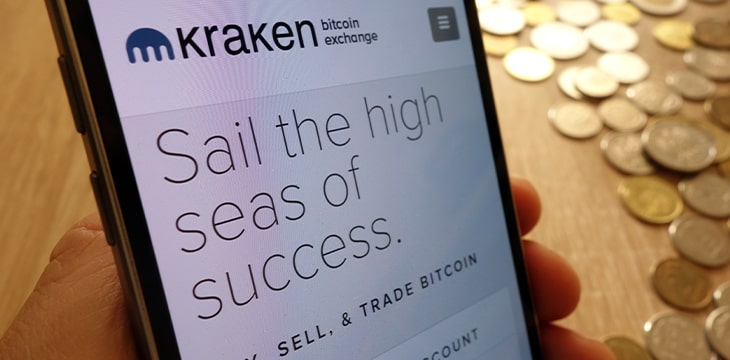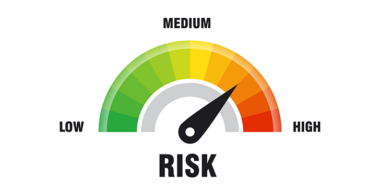| Getting your Trinity Audio player ready... |
Controversial ‘crypto’ exchange Kraken appears to be taking a page out of rival Binance’s playbook by making it harder for regulators to pinpoint exactly where the company calls home.
On April 6, San Francisco right-wing ‘activist’ Richie Greenberg tweeted a purported statement by Kraken boss Jesse Powell—although the attached statement was credited to ‘Jesse Powwel’—saying the company had “shut down Kraken’s global headquarters on Market Street in San Francisco after numerous employees were attacked, harassed and robbed on their way to and from the office.”
‘Powwel’ went on to criticize SF District Attorney Chesa Boudin’s “catch-and-release program, which has resulted in numerous preventable murders of innocent people. San Francisco is not safe and will not be safe until we have a DA who puts the rights of law abiding citizens above those of the street criminals he so ingloriously protects.”
Given that Greenberg is leading a recall campaign targeting Boudin, it wasn’t originally clear that the statement attributed to ‘Powwel’ was legit. However, Powell’s personal Twitter account later retweeted Greenberg’s tweet, and three days later Powell tweeted a video game clip depicting a chainsaw-wielding, bullet-dodging character strolling down dark alleyways, or what Powell claimed was a “POV walking home from the office in SF.”
The cryptocurrency exchange later issued a statement to CoinTelegraph saying that, despite the closure of its SF office, the company had “no plans to establish a new, formal global HQ.” The statement went on to say that “while we [Kraken] have no plans to change our status as a US-based entity, the location of our headquarters doesn’t affect how we run our business.”
Political crimes
Powell’s personal experiences notwithstanding, the issue of whether local crime is on the rise is debatable. The San Francisco Police Department’s own data shows decreasing rates of assault, rape and robbery from 2019 to 2021. Homicides, car thefts, burglaries and arson did show increases, but homicides and car thefts were also on the rise in California’s other major cities.
Basically, San Francisco’s overall crime rate for 2021 remained lower than pre-pandemic levels. The Mission district did report higher violent crime and property crime rates in 2021 compared to 2020 but those 2021 numbers were still lower than 2019’s.
Given that Kraken’s statement appears not to have been released to local media but instead to a failed GOP mayoral candidate with a hard-on for taking down the DA, it’s hard not to see this as the latest example of Powell’s eagerness to inject himself into political conversations in which he has an ideological bone to pick.
Earlier this year, Powell donated digital assets to Canada’s so-called ‘trucker’ movement, despite the overwhelming majority of Canadians opposing the illegal occupation of Ottawa’s downtown core and the equally illegal blockade of pivotal border crossings that significantly disrupted trade between Canada and the United States.
Despite the apparent disinterest in majority rule when it offends his personal sensibilities, Powell staged a Twitter poll to justify Kraken’s 2019 decision to delist Bitcoin SV (BSV) as a trading option, after which the exchange imposed a 10% haircut on users holding BSV before their assets were forcibly liquidated.
So while Powell’s Frisco freakout could be legitimately based on safety concerns, it could also be that he’s just tired of shelling out big bucks for office space in one of the nation’s more overheated real estate market. Or perhaps it’s just a prelude to a wider break with the U.S. and the increasingly tight regulatory environment for digital assets.
Kraken staff need protection; customers, not so much
Kraken isn’t the first exchange to bid San Francisco buh-bye, as Coinbase announced last year that it was closing the Bay Area headquarters it established in 2012. This was said to be part of Coinbase’s “remote first” strategy aimed at “ensuring no office becomes an official HQ.”
This ‘everywhere and nowhere’ strategy was originally pioneered by Binance, whose founder Changpeng ‘CZ’ Zhao claimed that Binance’s HQ was whatever hotel room he and his laptop happened to occupy at any given moment. This had the obvious benefit of creating major jurisdictional confusion when it came to figuring out who was responsible for reining in the company’s law-skirting antics.
Kraken has abruptly ditched other jurisdictions in the past, including saying sayonara to Japan in 2018 due to the increased cost of complying with local regulations. Kraken eventually returned to Japan two years later under its new subsidiary Payward Asia after finally making nice with Japanese financial regulators.
Kraken also did a runner from New York in 2015 rather than acquire the BitLicense that allows exchanges to offer services to local residence. In 2018, Powell refused to cooperate with the New York Attorney General’s inquiry into exchange operations. That refusal led the NYAG to include Kraken among the exchanges that lack sufficient “market surveillance capacities,” which limits their ability to “protect customers from market manipulation and other abuses.”
In response, Kraken declared that “being protected from market manipulation … doesn’t matter to most crypto traders,” a view that probably came as news to many traders. As if on cue, the following month saw Bloomberg report on logic-defying trading of the controversial stablecoin Tether on Kraken that strongly suggested the platform was being used for wash-trading.
Powell responded by tweeting some “unanswered” philosophical questions, including “Why did Ceasar [sic] cross the Rubicon? Who ate all the ice cream?” Powell added that Kraken had yet to uncover “any evil plot to taint the city’s water supply with Tether washing,” but we suppose that’s easy to overlook when you’re not actually looking.
Other unanswered questions Powell might want to ask: why do U.K. bankers think Kraken isn’t doing enough to keep scammers off its platform? Does Powell still personally engage in bank fraud when he finds its expedient? And when the Tether fraud finally implodes and drags the rest of the artificially inflated market down with it, will Powell finally admit he delisted the wrong token back in 2019?
Follow CoinGeek’s Crypto Crime Cartel series, which delves into the stream of groups—a from BitMEX to Binance, Bitcoin.com, Blockstream, ShapeShift, Coinbase, Ripple,
Ethereum, FTX and Tether—who have co-opted the digital asset revolution and turned the industry into a minefield for naïve (and even experienced) players in the market.
New to blockchain? Check out CoinGeek’s Blockchain for Beginners section, the ultimate resource guide to learn more about blockchain technology.








